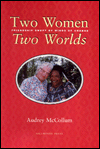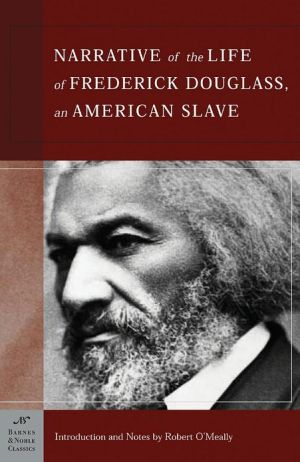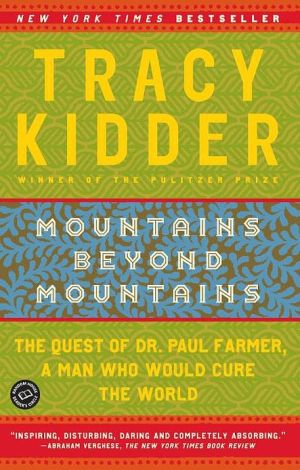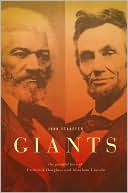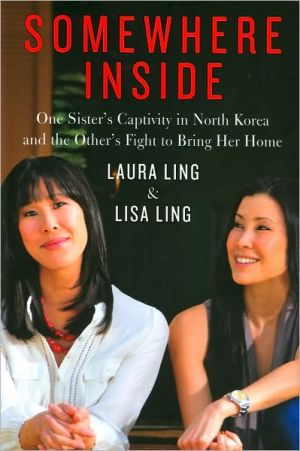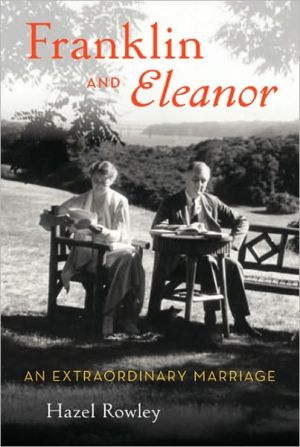Two Women, Two Worlds: Friendship Swept by Winds of Change
A U.S psychotherapist-writer adrift in a personal crisis meets Pirip, a feisty mountain dweller in Papua New Guinea (PNG) who is striving to lead traditional women into the modern world. They develop a compelling friendship that bridges their separation by language, eons of tradition, and 10,000 miles. The author's urge to understand Pirip's strivings fuels seven month-long journeys to PNG during thirteen years. Dense rain forests and precipitous mountains have spawned countless distinct...
Search in google:
A U.S psychotherapist-writer adrift in a personal crisis meets Pirip, a feisty mountain dweller in Papua New Guinea (PNG) who is striving to lead traditional women into the modern world. They develop a compelling friendship that bridges their separation by language, eons of tradition, and 10,000 miles. The author's urge to understand Pirip's strivings fuels seven month-long journeys to PNG during thirteen years. Dense rain forests and precipitous mountains have spawned countless distinct cultures and over 800 different languages in a nation the size of California. The author and her husband see people existing in harmony with the natural world, living richly textured lives without manufactured goods. Yet wherever they venture in this young nation, the clash between ancient and modern is the central drama, played out against a backdrop of sexual tensions. At first, McCollum supports Pirip's goal of bringing rural women into the spreading cash economy. Then doubt began to stir. Rapid Western-style development is stripping influence away from women and a sense of significance away from men. But when Pirip finally confides her private story, McCollum sees why her struggle is needed. She also fathoms the central question for Pirip, for herself, for PNG and the USA; namely, how can the exhilarating possibilities of change be balanced with the sustenance of tradition? The author's friends are asking, "Why do you keep going back to New Guinea?" The effort to understand her attachment to Pirip pulls her into a quaking bog of childhood memories, and then guides her onto firm ground again. In the end, that courageous mountain woman's affection lifts a timeworn veil of guilt and brings the author a calming self-acceptance. About the Author: Audrey McCollum was born and raised in New York City, where turmoil in her family sparked her drive to become a psychotherapist and writer. Educated at the Brearley School, Vassar College, and the Simmons College School of Social Work, she became a family therapist and research associate at the Yale University Child Study Center and Department of Pediatrics. During those years, she married and began rearing her daughter and son--trying to combine effective parenting and professional life when that was still uncommon among women. Her first book, Coping with Prolonged Health Impairment in Your Child was described as "the best book in the field with the worst title!" Expanded and updated, it was later published as The Chronically Ill Child: A Guide for Parents and Professionals. A move to New Hampshire rekindled her childhood curiosity about personal transition. Her groundbreaking book, The Trauma of Moving: Psychological Issues for Women was followed by Smart Moves: Your Guide Through the Emotional Maze of Relocation, co-authored by Nadia Jensen and Stuart Copans. Still available, it has earned accolades in the media and is described as "the bible" of relocation. An avid traveler, drawn to the beauty and mystery of tropical coral reefs and rain forests, McCollum became fascinated by Papua New Guinea -- a nation in the midst of tumultuous change. During repeated visits there, she and a mountain woman, Pirip Kuru, developed the complex and ever-deepening friendship described in Two Women, Two Worlds. McCollum practices psychotherapy, writes, skis, hikes, and lives happily with her husband in Etna, New Hampshire. (Papau New Guinea) Independent Two Women, Two Worlds is sure to become a classic travel book on PNG.... To read [McCollum's] descriptions of these magical places in the remote locales of PNG is to be transported to these spots and then guided through her keen sensitive narration to almost feel, touch, and breathe these mystical haunting places.
Pirip leaned back ... and let memories stream out. "In my life as a child I was told by my parents to look after the pigs; we had many pigs and they never stayed inside the fencing. Sometimes they went out destroying our neighbor's garden and the neighbors demanded compensation from us." ... Pirip and one brother, her father's first wife's second son, looked after the pigs belonging to all three wives, she said. Their gardens were in the "big bush"-- the forest, far away from the place where they lived. "My parents told me that their work was to make new gardens and look after older ones. My work was to look after the pigs, and to break firewood and fetch water."\ "How did you break the firewood--an axe?" No, Pirip explained, she gathered fallen tree branches, made them into a bundle, and carried them on her head. She fetched water for cooking and drinking from far away, collecting it in a length of bamboo. All those responsibilities held her back from going to the meeting places and the market--until the missionaries came.\ "How old were you then?" ... "Maybe seven years old. A year later my parents decided to put me in mission school. But my father was worried about me. Sometimes he stopped me from going to school because he thought the white-skinned people might take his daughter away. Later he realized that they came to be missionaries here and would not go back, so he let me go on schooling."\ "So your father cared for you well." "He did. Everything he owned was all mine. Sometimes he thought that I was the only one in the family." The memory brought a glow to her face, and she paused for a moment, as though to relish it. "Yes, Father loved me very much, so sometimes he cut ripe sugar cane or banana and asked me to come in the haus man and sit down and eat with him--sometimes I sleep with him in the haus." "Even at night?" "Yes, sometimes in the night. My father's love and concern was on me so much that he did not have concern about the seven brothers of mine."\ "What work did your brothers do for the family?" I wondered. "They would get slingshots and go out shooting bats and wild pigs and cuscus. They never listened to their parents, they went to find girl friends."\ "So your father loved you more, but he made you work harder than your brothers?" Pirip smiled but didn't answer. Questions ... crowded my mind but it was futile to push. Pirip and I were separated not only by language but by thought as well--different ways of finding meaning in our lives. ... [Yet] when we began our good-byes, I sensed my growing affection for this woman from another world. But I had let her down, and for me that's the stuff of nightmares.\ My father had been cursed by inherited wealth. When his fortune shrank in the 1929 stock market crash, he couldn't manage a transition from playboy to salaried worker. One night I saw him teeter on the windowsill, bellowing in a whiskey-rasped voice, "Look out below, here I come," while Mother clutched his ankle. Then he left and came back, left and came back, then left again--I never knew when it would happen or why. ... Like many children of turmoil, I sometimes imagined that it was all my fault and it was up to me to fix it, whatever "it" might be.\ My sister, Jackie, woke up sick when she was ten and a half. When I told our mother about Jackie's fiery spotted skin, she began phoning to find a doctor. We had no regular doctor and, in fact, no regular phone. In her slow slide into madness after our father left for the final time, Mother reclined all day on the living room sofa garbed in a rosy rayon negligee--lost in a reverie that gradually became demonic. She feared opening her mail, so the bills piled up unpaid. Utilities in our Park Avenue apartment were often cut off (Tennessee Williams would have loved the scene).\ Waiting for the doctor, I dressed carefully in a clean blue pinafore--it had been my uniform as a summertime city hospital aide. I filled a small glass with rubbing alcohol, covered it with a Kleenex, and plunged our thermometer into the sterile bath. It looked quite professional, I thought. Jackie had German measles, the doctor said. After listening briefly to Mother's torrent of agitation, he turned to me. I was fourteen, after all.\ He glanced at my thermometer, although he didn't use it, and quietly told me what could be done to soothe Jackie while rubella ran its course. "She shouldn't read much," he cautioned. Her eyes were inflamed.\ "But my homework!" she moaned. Our school had high standards. "Don't worry," I said. "I'll bring your assignments home, I'll read to you, I'll help you keep up." But I usually lingered at school--it was a better home than home--and then there was supper to fix. Mother hadn't been reared to cook, and our older sister was away at college. When we were short of groceries because the Gristede's bill was unpaid, well, the corner delicatessen made up a fine muenster on rye.\ The night before she went back to school, Jackie impaled me with her gaze. It was clear blue again. "You promised to help me with my homework every night. You didn't do it."\ That wasn't the only time I failed to deliver some help I had promised. The promises were well-meant and she trusted them; but then, absorbed in my own concerns, I would disappoint her. And when she died an unnaturally early death, I wondered if my neglect had played a part.\ Now, years later, did Jackie's shadow lie across my relationship with Pirip?
Map of Papua New Guinea Prologue Chapter 1 -- Payback Chapter 2 -- Bilums, Bride-price, and a Woman's Dream Chapter 3 -- Dreadful Desire Chapter 4 -- Searching for Connection Chapter 5 -- Pirip Persists Chapter 6 -- Haus Win Chapter 7 -- Paradox in Huli Land Chapter 8 -- The Zest of War Chapter 9 -- Making Men Chapter 10 -- "We Are Their Sisters, Their Mothers" Chapter 11 -- Magical Rivers Chapter 12 -- Spirits Old and New Chapter 13 -- Reunion with Pirip Chapter 14 -- Fresh Perspectives Chapter 15 -- The Circle Begins Closing Chapter 16 -- The Heart of the Story Epilogue Bibliography Glossary
\ (Papau New Guinea) IndependentTwo Women, Two Worlds is sure to become a classic travel book on PNG.... To read [McCollum's] descriptions of these magical places in the remote locales of PNG is to be transported to these spots and then guided through her keen sensitive narration to almost feel, touch, and breathe these mystical haunting places.\ \ \ \ \ Burlington Free PressEtna, NH resident Audrey McCollum recorded her experiences in Papua New Guinea to create her latest book...McCollum explores the life of Pirip Kuru, a native woman with whom she discovers many similarities and differences in their lifestyles -- things that make their friendship grow stronger. The book includes picture pages of the author's trip, and letters...between the two. The touching story reveals how deep the women's bond is, both wishing the other were their mother because of the honest, courageous qualities they held and desired.\ \ \ Publishers WeeklyFrom 1983 to 1995, McCollum, a psychotherapist and writer (The Trauma of Moving), and her husband made seven extensive trips to Papua New Guinea. This memoir focuses on a friendship she formed with Pirip Kuru, a highland tribal woman who was president of the South Wahgi Valley Women's Association, an organization dedicated to helping women become more independent by modernizing their skills. Although Pirip did not, at first, speak English, she and the author were able to communicate through interpreters and to exchange letters (excerpted here) with the assistance of others. McCollum vividly describes a society where erotic "courting parties" bind a woman to a man, who must pay a bride price, which may include several pigs, to the bride's family. The new wives are wed for life to their husbands, who are permitted to marry several times. The author did not discover until her last visit that Pirip had once been stabbed and that one of her children had been killed by her husband's fifth wife; her husband did nothing to help Pirip or to stop the violence. Although the author's depiction of tribal life is even-handed, occasionally she draws forced parallels between social problems in the U.S. and Papua New Guinea that add little to this otherwise well-wrought account. Color photo insert not seen by PW. (June) Copyright 1999 Cahners Business Information.\ \
